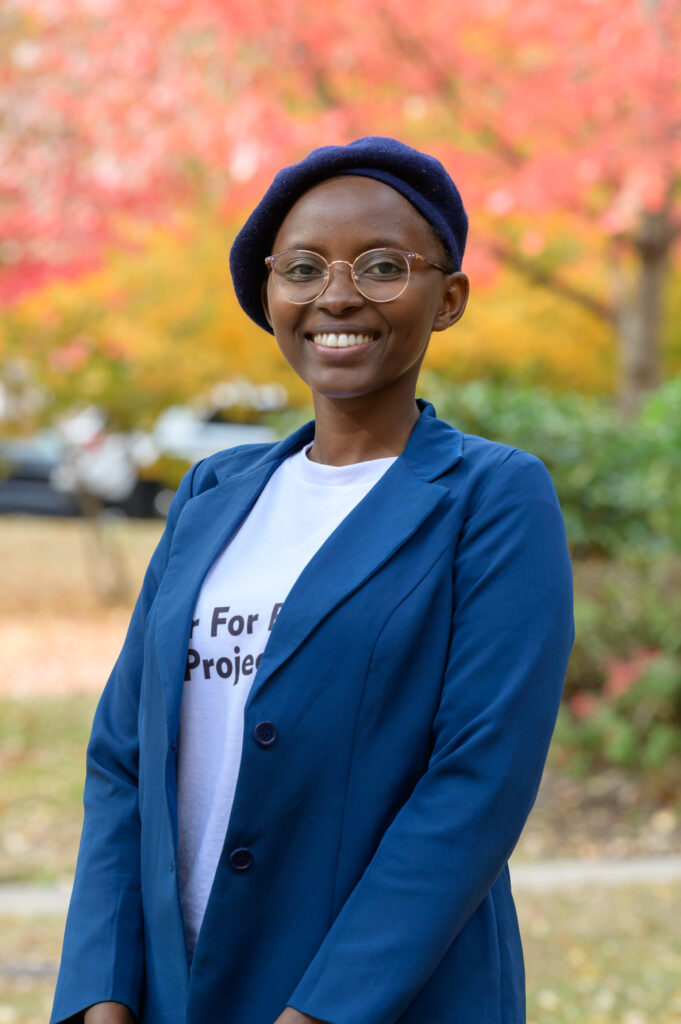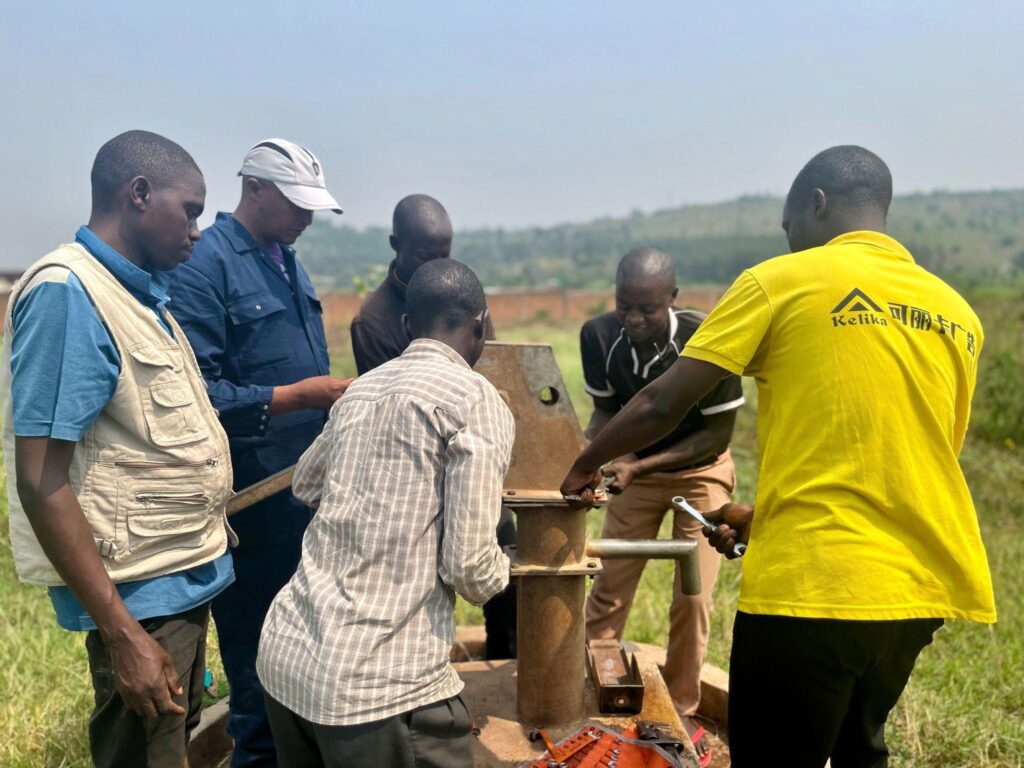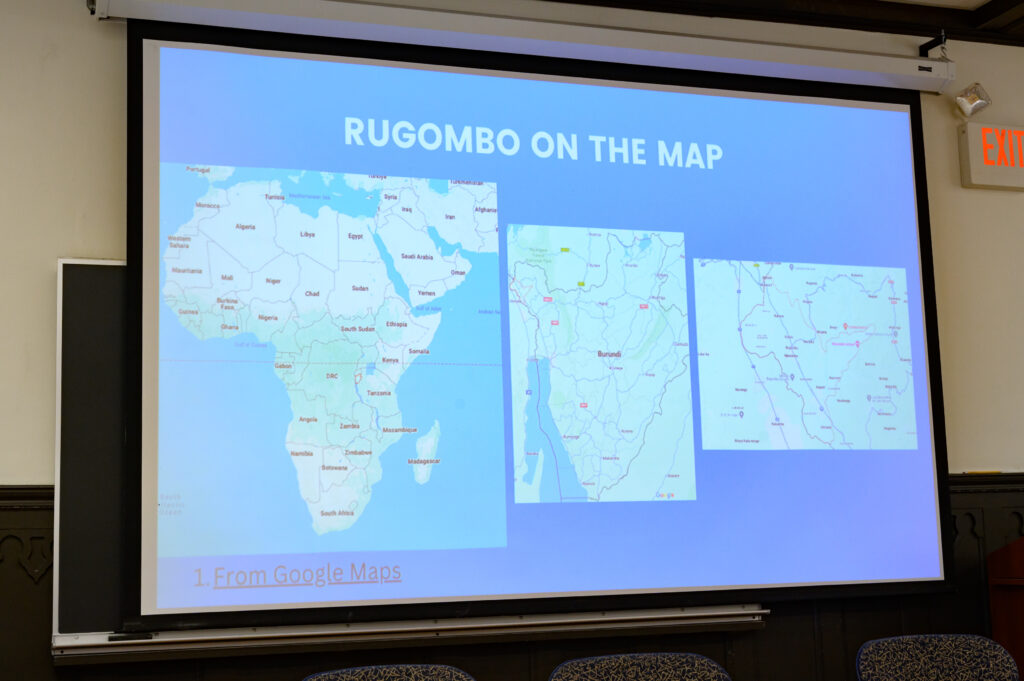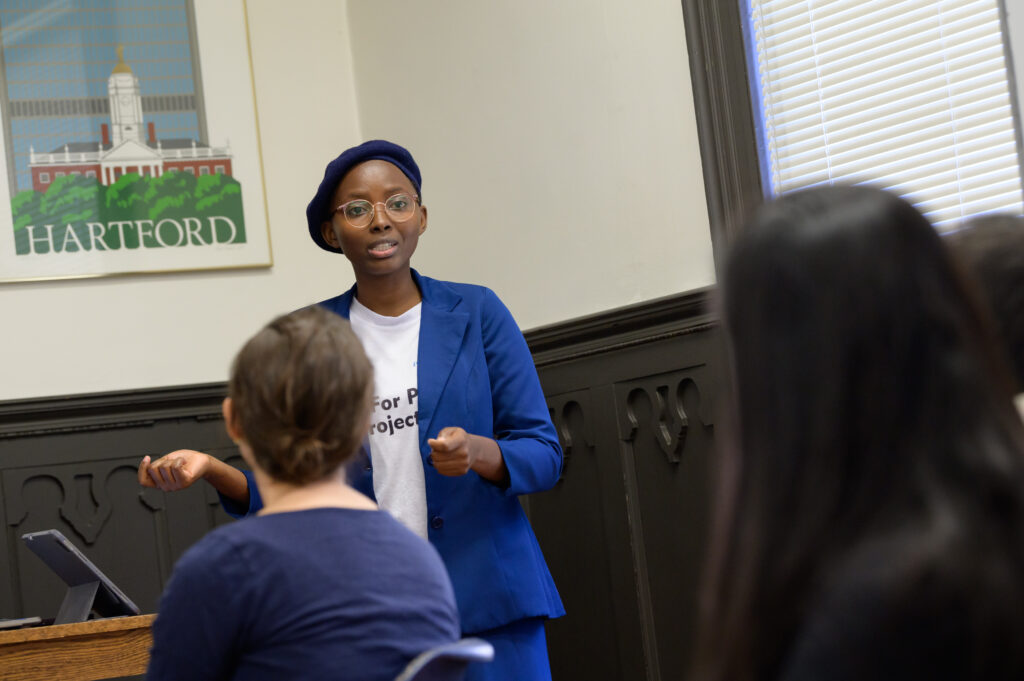Rebecca Irakiza ’25 Ensures Safe Water Access Through Projects for Peace Grant
A Trinity College student is working to provide better access to clean water in her home country of Burundi.

Rebecca Irakiza ’25 received a $10,000 Projects for Peace grant along with Godiolla Akimana, a recent graduate of American University of Beirut. Together they led an initiative last summer called “The Water for Peace Project: Bringing Rugombo’s Community Members Together to Rehabilitate Water Boreholes.”
Irakiza, who is majoring in neuroscience and human rights and will complete her degree in December, gave a presentation about the project on October 24 as part of the Global Vantage Point Lecture Series at Trinity’s Center for Urban and Global Studies (CUGS), which administers the Projects for Peace grants at the College.
The main goals of the project, Irakiza said, were to ensure that members of the community would have sustainable water access and become more self-sufficient. “We wanted to put citizens in contact with local government, so there could be more collaboration and recognition of persistent issues,” said Irakiza.
Water boreholes in Rugombo are simplified water drilling systems. Non-governmental organizations (NGOs) often install them in the region—especially during epidemics—as a way to improve sanitation and hygiene and to prevent waterborne diseases.
“The local community knows how to operate the boreholes, but what they do not know is how to repair the boreholes when they break,” Irakiza said. “This is because the NGOs do not invest in training local water technicians and forming strong water management committees, leaving the boreholes with no long-term monitoring and maintenance mechanism.”

Often, fake technicians would come in and steal parts from the boreholes. “A so-called technician would come in, say they would fix something, leave, and then not come back,” said Irakiza. “There was clearly no governmental surveillance over the boreholes, and they were not sustainable.”
In addition to increasing the capabilities of community members to maintain the boreholes, the project helped to rehabilitate non-functioning water boreholes and to establish a locally-centered, ongoing water management mechanism.
“Inadequate water governance not only contributes to disparities in water access, but targets specific communities,” said Irakiza. Only 52% of the population can access safe drinking water, she said, leading the way for waterborne diseases to seriously affect the population at large.
Irakiza spoke about her desire to make sure the project had a long-term, ongoing impact. “We wanted to give a space for people’s voices to be heard. Anyone could place a borehole and hope that the problem would be solved. The difference in our initiative was to bring community members together and create something truly sustainable,” said Irakiza.
 In Irakiza and Akimana’s project proposal, they outlined the ways in which their team would work to create a more sustainable way to access clean water in Rugombo and why it was so necessary. Working with the Water for Development NGO, Irakiza and Akimana were able to get in contact with many people and utilize vital resources needed for the project.
In Irakiza and Akimana’s project proposal, they outlined the ways in which their team would work to create a more sustainable way to access clean water in Rugombo and why it was so necessary. Working with the Water for Development NGO, Irakiza and Akimana were able to get in contact with many people and utilize vital resources needed for the project.
“When we first began the process, we trained the water management committees, convening with everyone; the experts, the technicians who helped us train, the local government, and the NGO we had partnered with, Water for Development,” said Irakiza
The project did not come without its challenges, as there were numerous barriers to overcome. Transferring the funds received from the project from the U.S to Rugombo was difficult, with Irakiza needing to create new bank accounts to wire the money. An expert technician that Irakiza worked with was suddenly unavailable. The timeline had also been a worry of Irakiza’s, as three months of the summer was a short span. However, having such a strong connection to Rugombo, Irakiza was determined to ensure the project would be successful.

Through Projects for Peace, Irakiza and Akimana restored numerous boreholes and implemented a better way for communities to access clean water. Irakiza felt this project was not only successful, but was an important steppingstone for herself, as well. Aspiring to work in public health, Irakiza is passionate about this project and is thankful to have had this opportunity while at Trinity.
“The best part of the entire experience was seeing members of the community come to watch what we were doing, express their gratitude, and give us a chance to better know them and understand their problems,” said Irakiza. “We better understood their resilience and saw the great potential the community had.”
Awarding approximately 125 grants each year, Projects for Peace is an international program that inspires students to design impactful, community-based projects to tackle the world’s most pressing issues. Trinity has been involved in the organization through 24 student projects since the program’s creation in 2007.
To learn more about Projects for Peace, click here.
